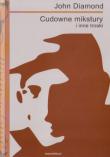
|
« Ludzie, cytaty Confessions of a Lonely Atheist by Natalie Angier Some time ago, The New York Times Magazine published a remarkable essay by Natalie Angier about her life as an atheist in the United States. The NYT website encouraged readers to submit comments about the essay by responding to the question „Is atheism dead?" Not a very intelligent question from the editors and publishers of The New York Times, but some of us who read this overrated publication have long found that the „best daily" in the USA is sometimes not distinguishable from all other corporate media publications. In some cases, as in the disrespectful, unfair treatment of Ralph Nader, The New York Times is not much different from the conservative rantings of Rush Limbaugh, that "dirigible of drivel," as he has aptly been called. Be that as it may, I felt compelled to respond because the publication of Angier's article is such a radical departure from the usual pandering to Judeo-Christian superstitions that I felt it was a civic duty to respond. Below is my letter, sent to NYT, but, of course, never posted or published. It's clearly not for the mass media, even though the original version I sent was more politically correct than the one below The question — Is atheism dead? — is preposterous. And rhetorical. As long as people can think independently, atheism will never be dead, even in such an embarrassingly Christianized country like the United States. For some reasons, it would be better to use the term „agnosticism," the best intellectual stance of those who can think undogmatically. To know that one will never know everything one would like to know about the nature of reality is the beginning of all wisdom. In the United States, "atheism" is so burdened with unfair, negative connotations that its denotation has been lost to average Americans, who usually confuse it with „godless communism" and have either forgotten or have never been taught that early Christians were communists and that communism can be either religious or non-religious. Many religions, but Christianity in particular, have caused so much pain and evil in the world that were we to have an International Tribunal to investigate religious crimes — an independent tribunal empowered to enforce its laws and verdicts — then Christianity and its myriad institutions and denominations would have long ago been legislated out of existence while thousands of Christian ministers and Catholic priests would have been imprisoned as ordinary (and extraordinary) thugs, rapists, child molesters, thieves, murderers, and other perverts. Just consider the Inquisition and the genocide of Native American nations by Catholic and Protestant protonazis. Christianity is yet to be held responsible for the horror the Christians have inflicted on the Tainos and hundreds of other Native American nations, on the Jews, and on many Asian and African nations. Unfortunately, nobody can bring to justice any more the inhuman Christian monsters who tortured Galileo and burned to death Michael Servetus, Giordano Bruno, and the little known Polish atheist Kazimierz òyszczyñski, as well as thousands of other „heretics" and "witches," long ignored and forgotten. And all this murder and mayhem in the name of „the only true god" and the "only true religion," extremely arrogant and absurd claims, which must be the most pernicious dogmas ever invented by religious bigots. Perhaps some day Christianity and Christians will be finally exposed for their extreme, unrelenting religious racism — the worst kind of racism in the history of humankind. How can anybody who knows the horrifying record of Christian worldwide missions believe in the Christian god? Or, to respond directly to your question, „Is atheism dead?" how can anyone not be an atheist if familiar with the death and destruction Christianity has caused everywhere Christian religious racists have forced their religious beliefs on non-Christians? Of course, there are some good things in Christian morality, though none in its vicious — misogynist and ecocidal — theology. The doctrine that the incomprehensible large universe was created by a personal god who sacrificed his only son for the sins of the very imperfect humanity he has created is incomprehensibly naïve and silly. And so is the disastrous biblical injunction that we should have dominion over animals and subdue the earth. Some good aspects of Christian morality can all be found in earlier moral and religious systems, from which they have been either appropriated or simply stolen. No beneficial Christian moral guideline is original. A major problem in the United States (and to a lesser degree in all other Western democracies) is the Christians have long controlled the educational system and have shut out the teaching of secular humanism in public schools. And so a young mind, given no option, will typically atrophy and default to some local Christian superstition: Catholic, Baptist, Methodist, Lutheran, etc. It takes intelligence and uncommon civic courage to publicly state that one is an atheist. This is why I would like to commend Natalie Angier for her article „confessions of a Lonely Atheist." Kudos also to the New York Times Magazine for publishing such a memorable article.
« Ludzie, cytaty (Publikacja: 18-10-2003 )
str. 2817 |
|||||||||||||||||||||||||||||||||||||||||||||||||||||||||||||||||||||||||||||||||||||||||||||||||||||||||||||||||||||
| [ Regulamin publikacji ] [ Bannery ] [ Mapa portalu ] [ Reklama ] [ Sklep ] [ Zarejestruj się ] [ Kontakt ] Racjonalista © Copyright 2000-2018 (e-mail: redakcja | administrator) | ||




